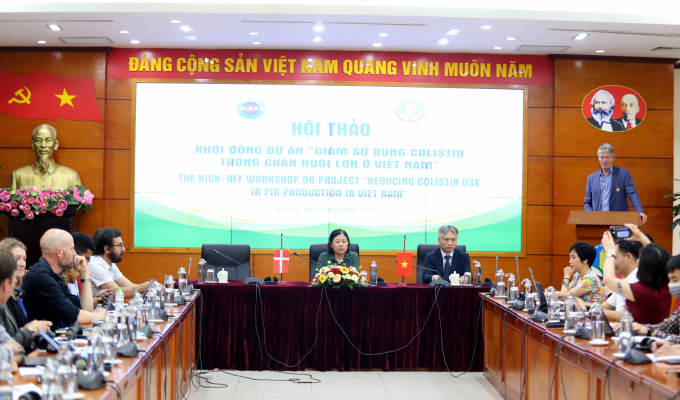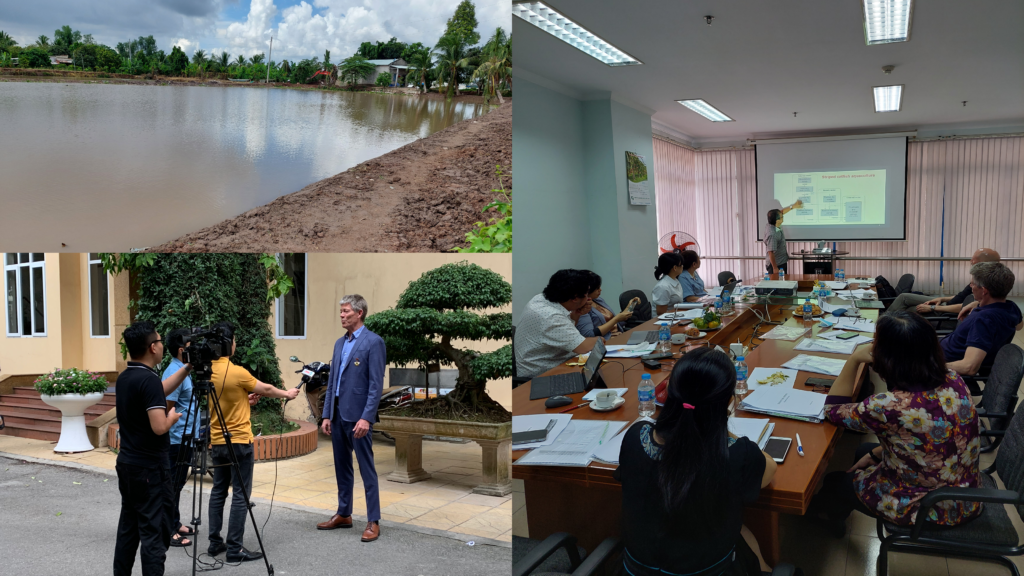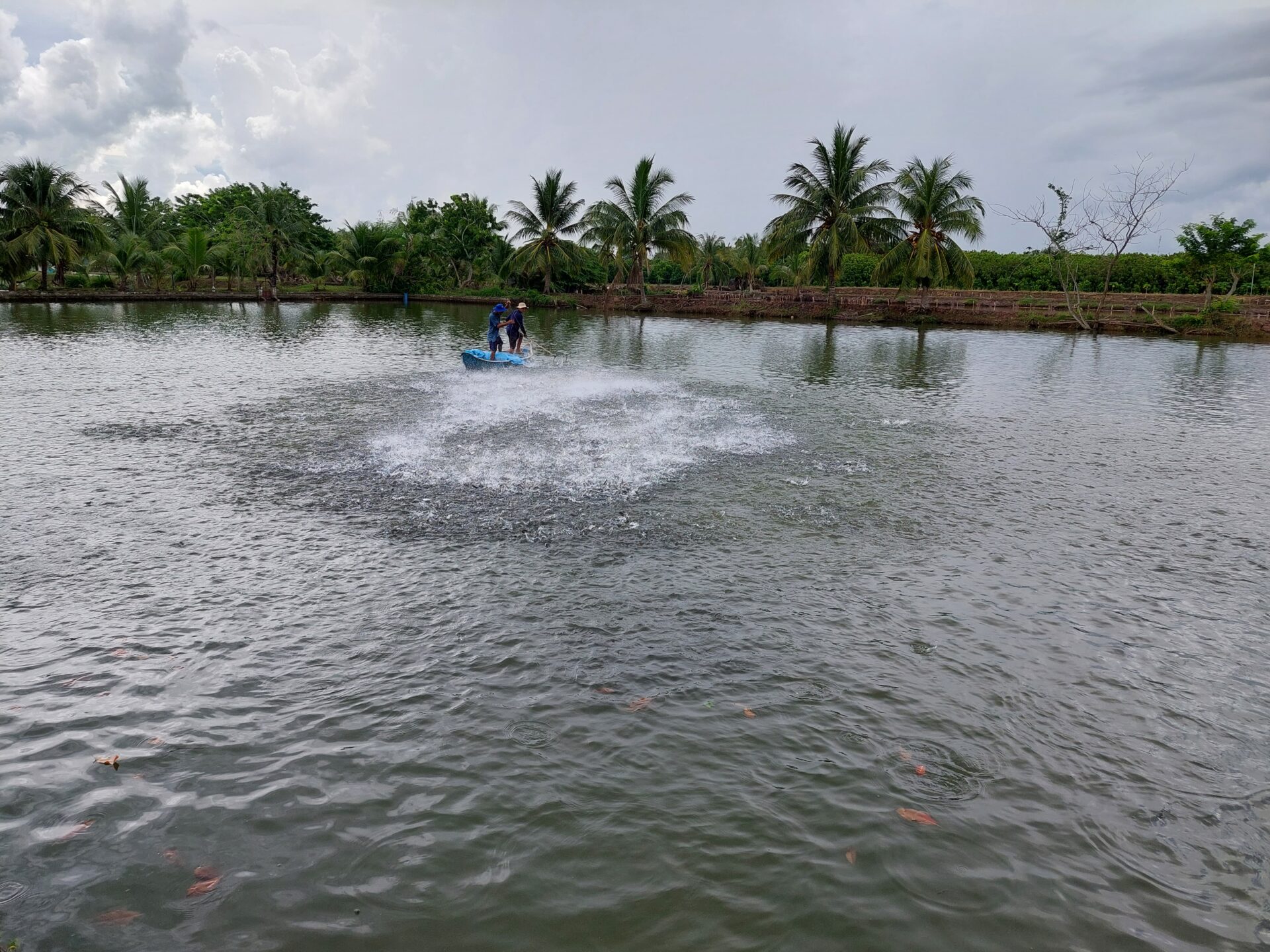At the end of May 2022, ICARS staff from the Science and Operations departments travelled to Vietnam to touch base with teams implementing projects, kick-start new initiatives and continue the co-development of new solutions aiming to mitigate antimicrobial resistance in both the human health and aquaculture sectors.
In the following, we share highlights and outcomes from our action-packed week in the field.
Projects being implemented in Vietnam
During the visit, the project teams held a kick-off workshop for an intervention which aims to support sustainable and healthy pig production by reducing use of colistin and other antibiotics to control weaning diarrhoea in piglets. The project will implement alternative interventions to colistin, e.g. vaccination, in medium- and large-scale farms to understand cost-effectiveness and pig health outcomes from different alternative interventions to control weaning diarrhoea. At the event, stakeholders engaged in the project by discussing which alternative interventions to prioritise and how best to coordinate efforts across the various project partners involved. Great enthusiasm was expressed for the project being led by the Ministry of Agriculture and Rural Development and the news of the project’s launch was covered in the Vietnam Agricultural Newspaper.

In addition to the above intervention, ICARS is also funding Hanoi University of Public Health, to participate in the I-CRECT project under the JPIAMR consortia of One Health interventions. This project aims to evaluate and reduce transmission of Carpapenem-resistant Enterobacteriaceae (CRE) from discharged hospital patients to household members, community, livestock and the environment. Following the project launch in February, the project teams are currently busy assembling the work packages and taking the first steps towards implementation. This trip provided a valuable opportunity for ICARS to meet the project teams in person and hear about the progress made so far.
Projects in co-development
In addition to the I-CRECT project, ICARS is also working with the Ministry of Health to develop a concept note for a complimentary project. During the visit ICARS teams met with project partners to discuss the next phase of the co-development process.
Another Vietnamese project in the pipeline, aims to rationalize antibiotic use in Pangasius and Tilapia aquaculture. During the trip, ICARS teams held a strategy workshop with relevant stakeholders in Ho Chi Minh city, the reflections from which will be fed into the project design and concept note, currently under co-development. Being in-country also made it possible to meet with key industry representatives to understand their perspectives on the possible entry points to improve antimicrobial use practices in Vietnam. There was also a visit to Pangasius farms in the Mekong River delta, to understand the processes followed during production in small- and large-scale farms.

Other activities
Given ICARS’ focus on partnership, and goal to work collaboratively with others to increase our impact and avoid duplication, the Vietnam trip made it possible to meet with the Danish Embassy, International Livestock Research Institute and the Food and Agriculture Organization of the United Nations. These meetings facilitated a productive exchange of updates to explore areas for potential future collaboration and project complementarity.

